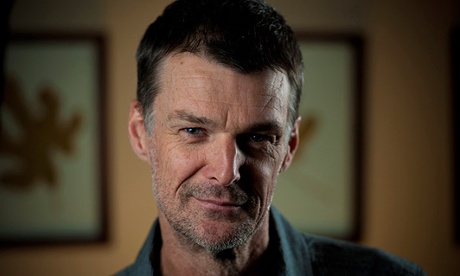
"Let’s go away for the weekend," filmmaker Megan, married to Evan, says to her friends in the opening of Wayne Macauley’s new novel, Demons.
And so, on a Friday night, seven adults head to a two-storey house on a remote part of the Great Ocean Road, where, in the tradition of an Aussie campfire, they drink wine and tell stories as the rain howls around them. But as the stories emerge, it becomes increasingly obvious the weekend is going to be more complicated than they originally thought.
The stories – all with a title and the name of the teller, such as "Megan: Waiting Lists …" or "Hannah: Pan …" – rise and fall out of the campfire chorus. The omniscient narrator moves in and out of the characters’ heads at will, directed by whatever event or character is foregrounded in that given moment. The effect is somewhat like a musical score.
The stories themselves, however, are more of a mixed bag. Macauley is at his best when he is working with the satirical tone he became known for in his breakthrough novel, The Cook (Nick Cave is probably its most famous fan).
Unlike some of the other stories, which are either gruesome or inconsequential, in Woman Killed By Falling Man told by Lauren, a suicide attempt is thwarted when the man attempting to top himself lands on his lover. And later, a short anecdote about a woman who achieves perfect wines by unloading certain bodily fluids onto her husband’s grave, achieves a similar, horrified-hilarious effect.
Throughout the narrative, the conversations in the novel lean mainly towards the troubles of the intellectual, left-leaning middle class. And as the novel progresses, these concerns are milked for varying amounts of pathos and parody. There’s much talk of Australia being the lucky country, and the comparison between an older generation and the bludgy, social media-obsessed Generation Y, of which the friends are mere observers.
And later on, when other characters moan about having lived without wars and revolutions, Macauley writes with a nod and a wink. "I lived truly, once," says Marshall, Labor politician, who arrives late with his teenage daughter, Tilly, after being held up by a personal tragedy, "back in the days when I was a student, in student politics and that: do you remember? Back then those two things, living and truth, just sort of went hand in glove."
Another major theme of the evening is stories and storytelling. "Mightn’t we be better off looking to get our truth these days through an artifice that truthfully says it is one?" says Adam, in a meta conversation about the effectiveness of storytelling. In these discussions, the characters do their best to evoke some kind of feeling out of their ultimately privileged, Whitlam-era lives.
But as revelations from the group begin to affect the politics of the evening, it’s obvious that the characters, like their stories, are running out of steam. When the climax comes – involving a game of truth and a storyline involving Tilly – the tragedy does not have the desired effect. Like the playwright Anton Chekhov, who is often referenced in the novel, Macauley treads a fine line between satire and sentiment.
As a writer, Macauley exerts admirable control with his sentence construction and pacing, echoing the building of the narrative and the movement of the narrator. But at the end of the day, with the distancing effect of the narration, and the improbability of the central narrative, it is admittedly hard to feel anything for these people who, in their own words, have had it good.
"And what a vision I had then of a happy life," says Tuzenbach, from The Cherry Orchard, by Chekhov. "Where has it gone?" It’s still there, although Macauley’s characters are clearly incapable of seeing it.

